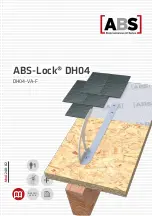
Summarizing the operating instructions:
1.
Inspect the system for damage. Check oil/fuel levels.
2.
Attach the Feed hose to the unit,
NEVER TURN OFF PUMP WHILE WORKING
3.
Start water supply and ensure that the system is primed.
4.
Attach the gun to the pressure hose.
5.
Make sure that the diver is ready to work and that the gun is submerged in the
water.
6.
Apply hearing protection, start the engine and adjust the throttle to “MAX.”
7.
Activate the cleaning cavitation stream by squeezing the gun trigger to open or
“on.”
8.
Proceed with cleaning.
9.
When cleaning is complete, shut off the unit.
10.
Release pressure from the hose(s) by squeezing the gun trigger to the open or
“ON” position while under water.
11.
Remove the gun from the water.
12.
Flush the system and rinse the outside of the power unit with fresh water.
WARNING: While the CaviBlaster® system is very safe, operators should exercise
care when using this equipment. With the diver lance underwater, the
cavitation “flame” can be safely passed over the operators’ skin at
normal operating distances of 2” –
3” from the tip of the nozzle.
However, at
very close distances (typically less than 1”) both nozzles
can cause harm to the operator, particularly in the initial instant that
the system is activated. For that reason, operators should exercise
caution when operating the gun with the nozzles in close proximity to
the body. The operators should also ensure that the reverse-thrust
nozzle guard is secured in the correct position prior to operating the
gun. The operators of the CaviBlaster® system should always wear
neoprene or heavy rubber gloves to provide protection to the hands
and, in particular, to the nails. The gloves will absorb most of the
energy produced by bursting cavitation bubbles and prevent the
cavitation bubbles from contacting the operators’ hands. The gloves
will also protect operators’
hands from the initial shockwave when the

































